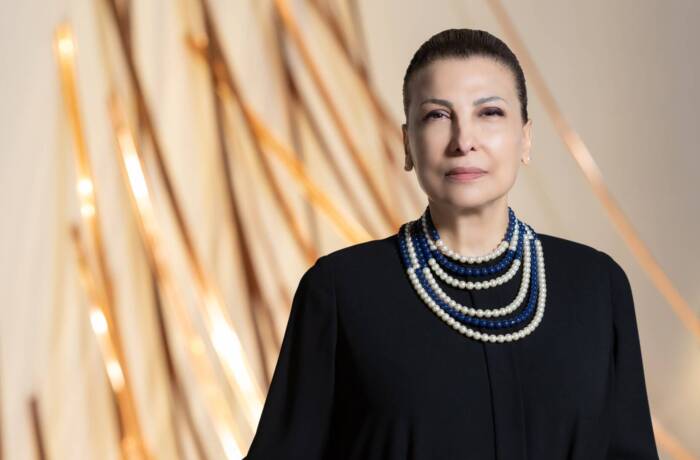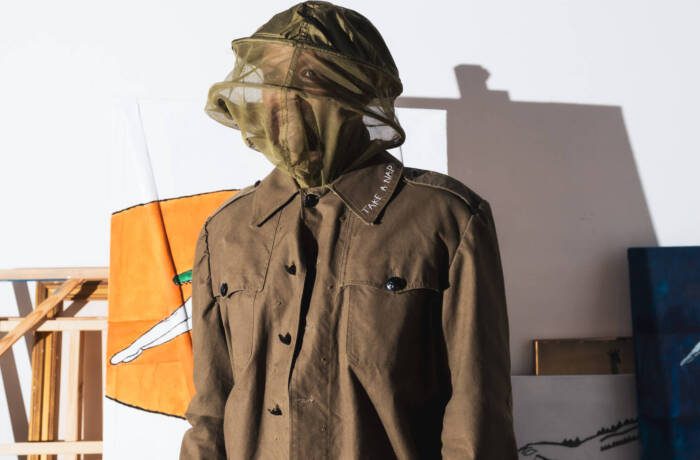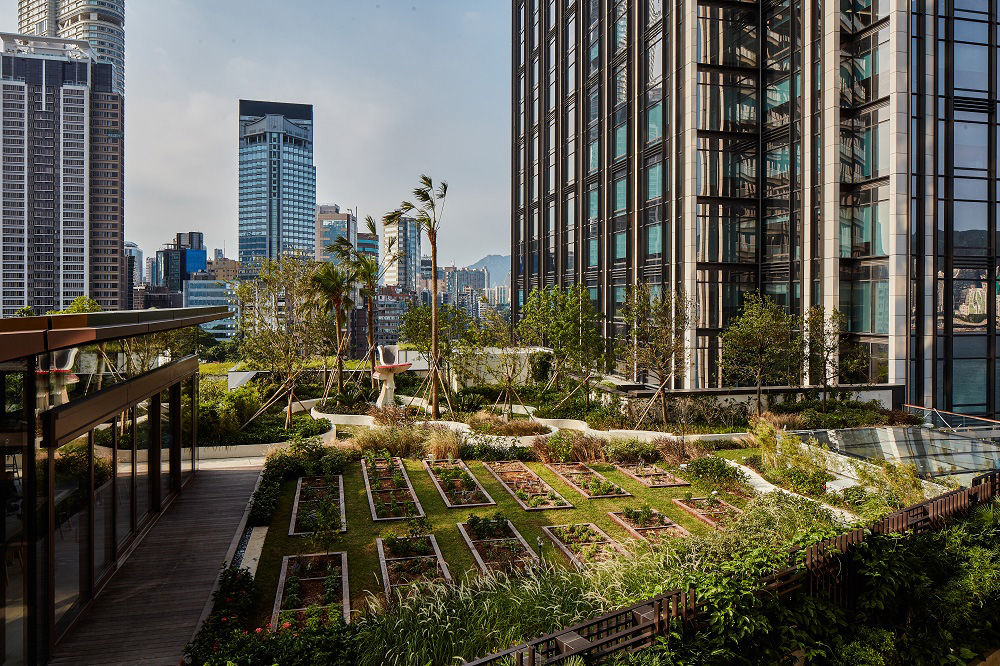
The K11 MUSEA features a roof garden where clients can grow their own herbs and vegetables
Adrian Cheng has high hopes for the new K11 MUSEA in Hong Kong: to change the way retail, art and culture collide, says Darius Sanai
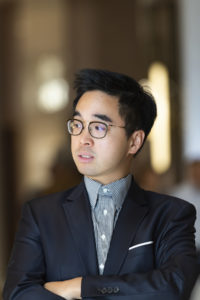
Entrepreneur Adrian Cheng
When billionaire Hong Kong entrepreneur Adrian Cheng opened his K11 MUSEA development on Hong Kong’s Victoria Dockside late last year, he heralded it as “The Silicon Valley of culture”. It was a concept that some found hard to get their heads around, but a visit to the development is enlightening and points to ways K11’s innovations could have influence across the world in future.
Follow LUX on Instagram: luxthemagazine
At the heart of K11 MUSEA is a funkily designed luxury and fashion retail mall, housing the usual roster of names found elsewhere in China, from Alexander McQueen to Supreme. It’s the architecture and design, headed by New York-based James Corner, and the depth of concept in the detail, that is so innovative. K11’s roof is a kind of kitchen garden-cum-safari park, with spaces where clients can grow their own herbs and vegetables, a natural butterfly park (open for visits by any passing butterfly), a giant aquarium mimicking Victoria Harbour directly below, and rangers working to show local school groups the rooftop flora and fauna Inside, alongside the living walls and slides connecting different floors, is a constantly rotating roster of curated public art, chosen by Cheng (a significant collector) and his team. An e-sports zone allows you to indulge in the sports of your choice, there are public art and performance spaces, and nattily attired concierges sit at desks made of recovered logs.
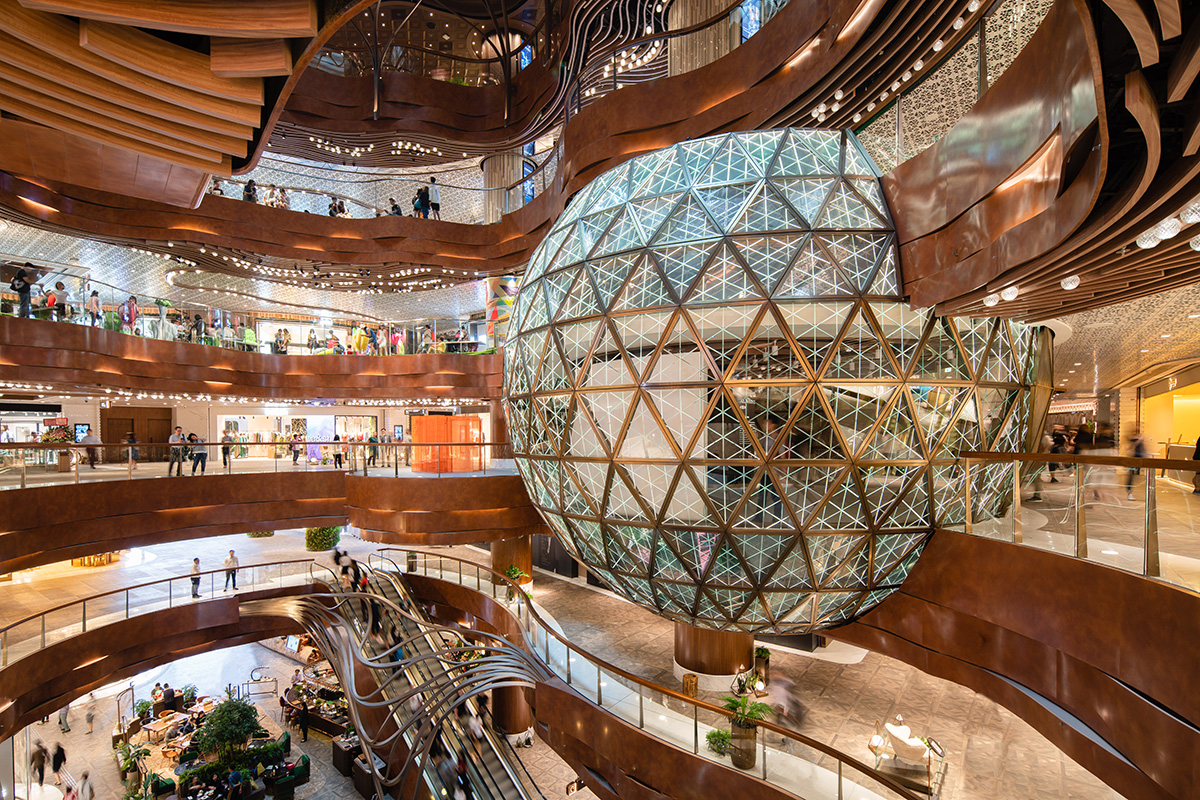
The interiors of the luxury and fashion retail mall
Cheng’s aim in the development, which sits on prime waterfront land in Kowloon directly facing Central Hong Kong across the water of Victoria Harbour, is to bring retail, culture and technology together. Cheng is himself a complex and multifaceted entrepreneur: third generation heir to a multi-billion-dollar property and services empire, he is reinventing the family company, which also includes
brands like Rosewood Hotels and Resorts, for the future. He has as many friends in art and fashion as he does in the traditional family industry, and you feel Cheng is never happier than when reinventing something – and yet he has also invested time and money into a foundation to restore traditional Chinese crafts, and is something of a craftsman himself – it is his own hand that forms the calligraphic decorations around K11 MUSEA.
Read more: Plaza Premium Group’s Founder Song Hoi-see on airport luxury
The development has innovative platforms being planned using AI and facial recognition, as well as tie-ins with AI retail companies Cheng’s group has invested in, across the water in Shenzhen’s technology zone and across the globe: these are the spaces developers and retailers around the world will be watching.
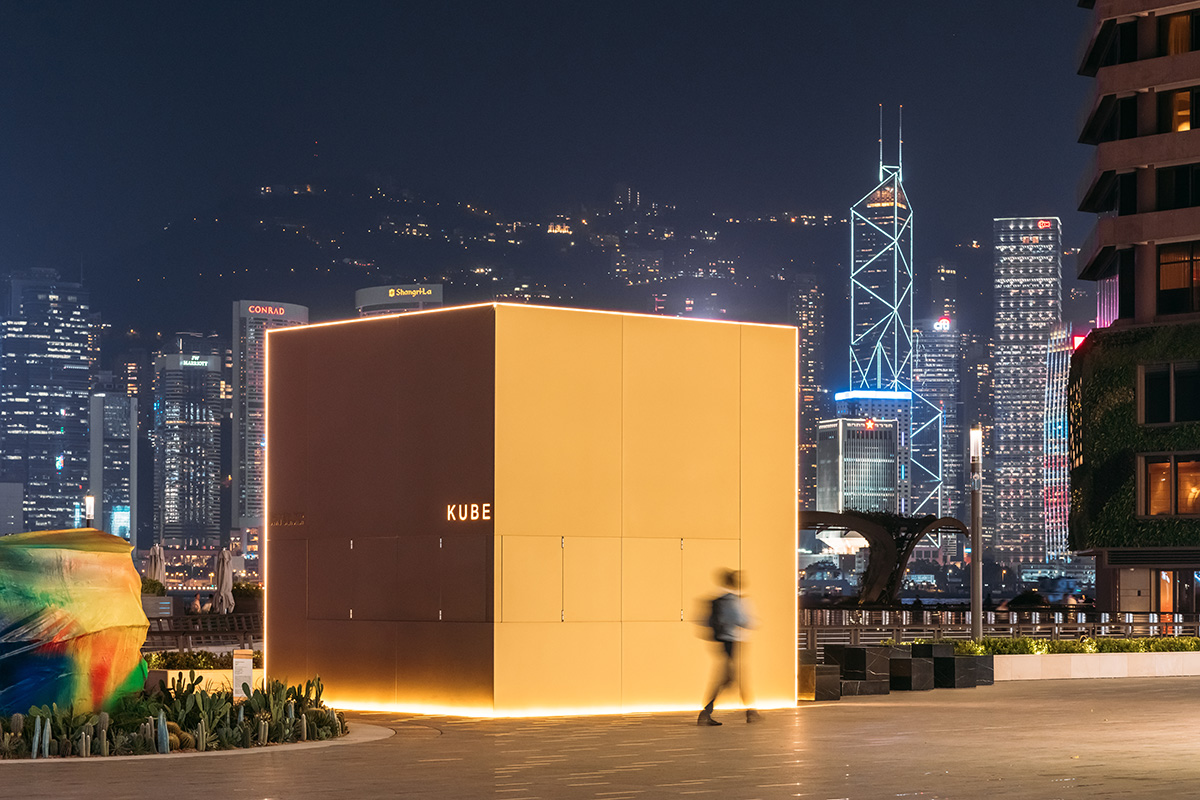
The Kube kiosk designed by Rem Koolhaas’ studio OMA
As Cheng tells LUX: “When you purchase or sign up for something at K11 MUSEA, our loyalty programme allows us to understand your preference, basically what excites you the most. With enough samples, we can sufficiently draw correlations that will shape how we curate our brick-and-mortar spaces in the future. This is the advantage of running vast spaces like K11 MUSEA because it offers flexibility and a lot of possible curations. It’s about growing with our customers, predicting their needs and also working with brands and partners to create an inspiring customer journey. In fact, one of the companies I invested in, Moda Operandi, which we brought into K11 MUSEA, has a similar model. Online preferences will shape the store display, styling services and the various events that they host. Both K11 and Moda believe in creating a journey of wonder, for customers to learn and discover.”
There is also, importantly for Hong Kong’s current climate and from a scion of one of its most important families, a significant public/ community aspect to K11 MUSEA and the surrounding Victoria Dockside area which Cheng and his family company, New World Developments, has revitalised.
K11 MUSEA may be ground-breaking, but it’s unlikely to be the last creation of its kind from the peripatetic multi-business, multicultural Hong Kong dynamo.
‘Musea: A Book of Modern Muses’, published by Condé Nast, is available at boutiquemags.com
For more information visit: K11musea.com
This article was originally published in the Spring 2020 Issue.

